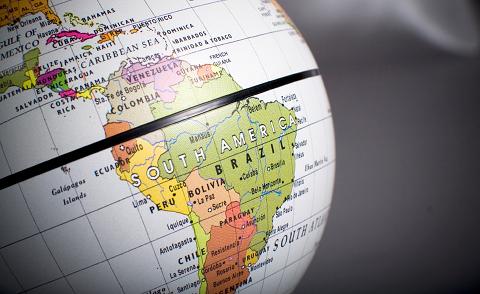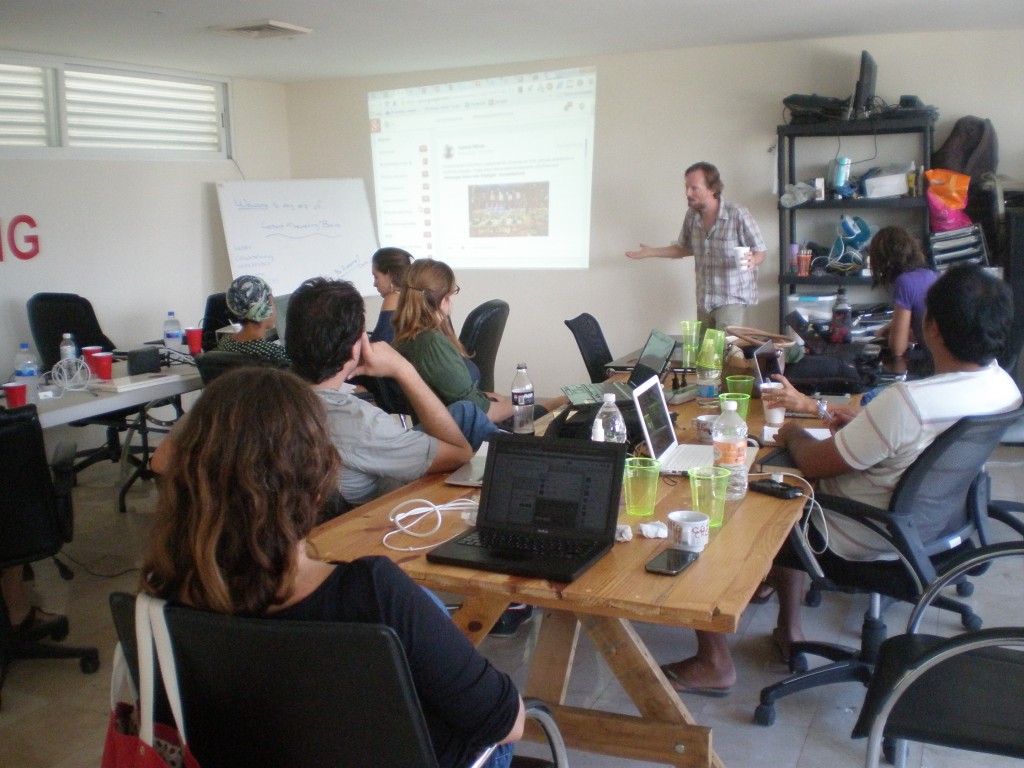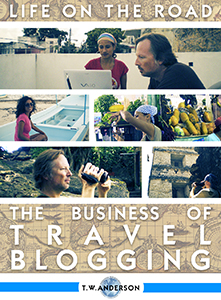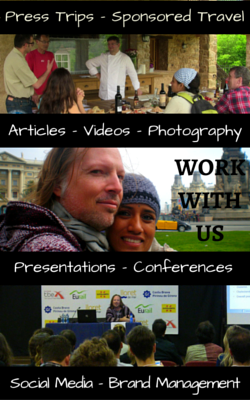
Any time you get into the business side of dealing with another country, you’ll find that things vary dramatically from the way things work in your home country. If there’s one mistake I see bloggers and travelers coming into Latin America make, it’s the #1 mistake in the book: a lack of know-how in navigating cultural differences and the assumption that it will work just like it does in <insert home country/primary audience here>.
What works back home or for your English/French/German/Insert-Favorite-Language-Here audience doesn’t necessarily translate into the Latin way of doing things. And if you plan on making any sort of deals here in Latin America, you are going to have to unlearn everything you think you know about business…because it doesn’t apply.
First and foremost, if you can’t speak the native tongue you shouldn’t even plan on working alongside your Spanish-speaking peers. It shows a complete lack of respect and zero investment into the culture of the people you are trying to work with.
Secondly, even if your potential partners speak English alongside Spanish, they’ve already taken the time to pick up your language; the least you could do is pick up theirs.
More importantly, however, is the simple fact that many of the cultural differences that make business so different in Central and South America in comparison to North America, Europe and Asia, are completely lost in translation if you haven’t spent enough time in a country to grasp their humor, their beliefs, their customs and their way of living.
Let’s use bartering as an example. In many Latin countries, people have been living in cash-poor conditions for many years. It’s only been in the recent past that the majority of countries in Latin America have become developing countries with an emerging middle class. Yet despite the fact that there is a surplus of cash on hand, they are loathe to spend it.
Instead, the Latin way has always been about bartering. Trading services for services. Favors for favors. Money doesn’t just trade hands based on past clients and reputation; it’s about trust and value. You getting a fair trade, and me getting a fair trade. Or maybe one of us sweating a bit by the time negotiation is done. But cash generally only changes hands when it’s for living expenses: rent, gas, water, food, etc. because the people only make enough to pay for those basic essentials, and any surplus goes towards building a new level on the house or putting kids through school.
You know, middle class issues.
Which makes it difficult when you are trying to convince a small business like a restaurant or a hotel as to why they should hire you for web design, social media, website content, a blog or more. They are used to trading service for service (or having a receptionist who does six different jobs, when in reality she should only be focusing on the one; a receptionist is *not* your social media manager or graphic designer. They are two very distinct and different jobs), not forking over 2,000 to 3,000 USD for a website like your Canadian/American/European clients do.
Then there’s the simple fact that in the Latin world you are dealing with a general public who is only just now in the last few years starting to really see the potential of making a living via digital means. My own personal estimates put most of the Latin world roughly 10 years behind the developed countries in terms of social media and blogs and websites being used to drive business and sales.

This has nothing to do with the people of these countries; they are not inferior or backwards. It’s simply taken 10 years for this part of the world to catch up with the northern parts where you and I take for granted things like instant connectivity and online portfolios and digital entrepreneurship.
Which means emails are often unanswered, or the mailboxes are overflowing because people only check their mail once a week, or worst yet, once a month. Websites are left unattended a year later. Facebook pages spring up in the name of a restaurant but as a personal profile account. Hotmail addresses are used and then forgotten weeks later. Press and media kits and digital proposals = pointless when you are dealing with clients who will only ever talk to you via a phone or face to face and will never click a link.
Instead, many people on the ground in Latin America still rely on flyers passed out by hand around town, advertisements in newspapers. This is especially true of the local corner bar, cafe, pizzeria, tortilleria, mercado or beyond. Whatsapp is their weapon of choice, not a Facebook page or a Twitter account.
What this means for you as a digital entrepreneur is that you have to switch gears if you plan on doing business down here. You’ll need the language first and foremost. That’s a good 6 month to 1 year investment so that you can speak fluently and well enough to converse professional with potential clients.
Then there’s time on the ground getting to know the culture, to establish the relationships and negotiate your way through to the point where the potential business partner is willing to actually hand you cash based on your ability to sell yourself to the client. They won’t be clicking on links to Klout, they won’t understand Google Analytics, and Facebook engagement levels mean nothing uneless you can get the owner to sit down with you, in the moment, and be personally invested enough in the relationship to trust you.
Trust. That’s the key. Not money or the lowest price. It’s all about your ability to earn the trust and respect of the person you are looking to work with. And that only comes with time and effort. Investment of personal self and winning the partner over. Because that’s what they are in Latin America. They aren’t clients. They are partners. Socios.
That’s a very, very important distinction between doing business in the Western world of cold, soul-less emails and press kits and traffic numbers and analytic and statistics, and the Latin world where people still want to shake hands with and get to know the person who they are trusting with the future of their business. And who is asking them to invest half a year to a year’s salary to build their dream or enhance their existing concept into something more modern.
This obviously changes somewhat when you are in major cities where you are dealing with an international melting pot in terms of locals who speak multiple languages, have studied abroad and rely on high-speed Internet and modern infrastructure to make a living. There are plenty of Spanish blogs and Facebook pages and Twitter accounts and freelancers as well as brands carving out their own niches in the digital space.
But there’s a reason why The World Bank named Latin America as the fastest growing market in the world in 2012: the rise of the middle class and the race to “catch up” to the rest of the developed world. There is a slew of work out there to be had…but only if you speak Spanish and know how to get around those cultural differences.
Get a FREE copy of our latest publication!
And don’t forget to sign up for our free newsletter for several-times-a-week, your-eyes-only travel and entrepreneur tips, plus receive a complimentary copy of our 85-page starter book on location independence and living abroad, 30 Ways in 30 Days.
And don’t forget to sign up for our free newsletter for several-times-a-week, your-eyes-only travel and entrepreneur tips, plus receive a complimentary copy of our 85-page starter book on location independence and living abroad, 30 Ways in 30 Days.
With over 1,500 copies sold, our flagship 568-page eBook is what started it all. Learn how to travel the world like I do: without a budget, with no plans, funded completely by your website and online ventures.
Unplug from The System, cure yourself of The Greedy Bastard Syndrome, tap into your universal potential and create your own reality. Build a brand, travel the world and realize your cosmic consciousness.
Photo credit http://www.cgdev.org/sites/default/files/styles/large/public/latin-america.jpg?itok=lt0RYZD1









Indeed, Kenin. Here, statistics are less important than the personal connection and treating the client like a partner/earning trust.
Tim,
These are some great insights. It’s amazing how a simple phone call or face to face interaction can make all the difference in the world to an online business.